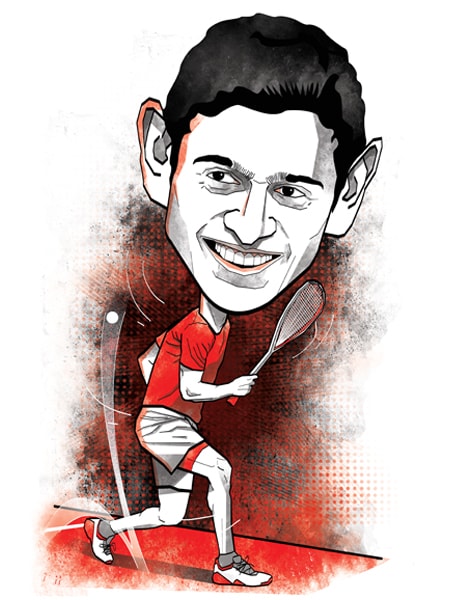
Squash players were expected to just make up the numbers. I wanted to change that: Saurav Ghosal
Saurav Ghosal, India's first individual Commonwealth Games medallist in the sport, breaks down his path to glory
 Saurav Ghosal, Professional squash player from India
Illustration: Chaitanya Dinesh Surpur
Saurav Ghosal, Professional squash player from India
Illustration: Chaitanya Dinesh Surpur
Squash wasn’t really a popular sport when Saurav Ghosal started playing it in the 90s, while in school. Back then, his idol, like many Indians, was Sachin Tendulkar, and what he took away from the cricketer’s career was his single-minded obsession with perfection. It’s a game Ghosal, now 36, still plays with himself—of becoming a better player every day. Recently, Ghosal became the first Indian to win an individual medal in the Commonwealth Games, when he beat his dear friend and nemesis James Willstrop to take the bronze. In this interview, he breaks down the secret to his longevity and how he built up to this sporting history over a two-decade career. Edited excerpts:
Q. You started playing squash in school. But when did you realise you could take it up as a profession?
A. I think there were a couple of inflexion points in my junior career, which pushed me towards believing that this was possibly something that I could do for a good part of my life and make it a so-called job. When I was 13, I had to pick between cricket and squash. I was going to class 9 and with academics, playing two sports seriously was getting hard. I chose squash at the time because I felt that it was something that made me the happiest.
Then I started getting big results when I turned 15-16, and on the world stage as well, I started winning tournaments on the European circuit; I won the British juniors at 17. All those things ushered me into playing professionally and it was like a natural progression into the senior ranks and the professional world of sports. But I think the most defining feature and reason for all this were that I enjoyed myself immensely whilst I was on the squash court.







